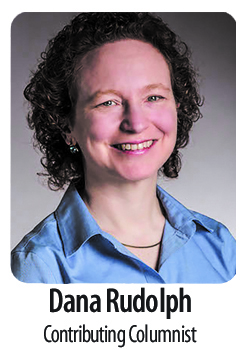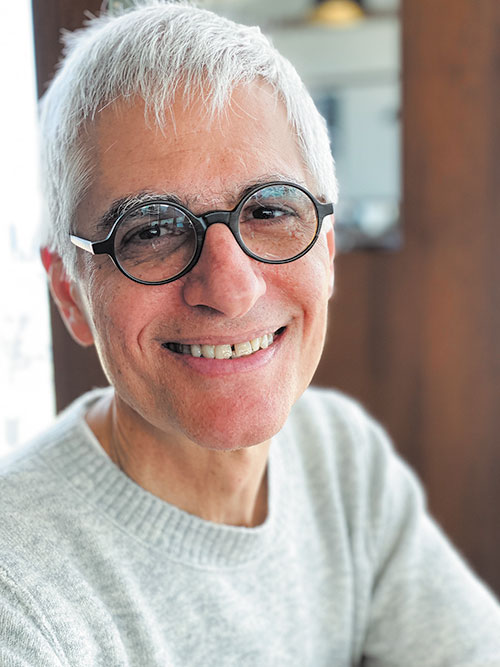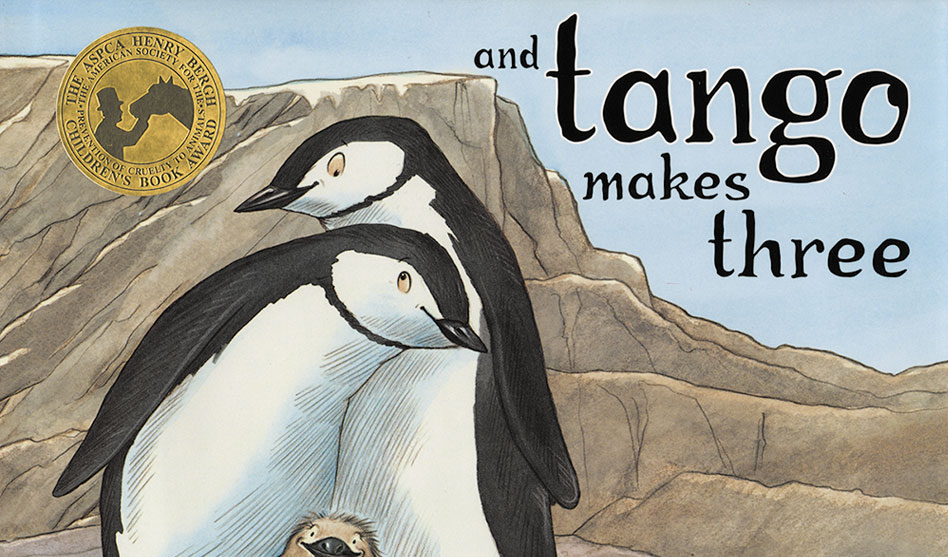‘And Tango Makes Three’ authors reflect on new wave of book bans
 Justin Richardson and Peter Parnell’s award-winning picture book, And Tango Makes Three (Simon & Schuster), based on the true story of two male penguins who hatch an egg together, has been one of the most-challenged books in the country since shortly after it was published in 2005. Yet the current surge of book bans and challenges sweeping through the U.S. is different from anything they’ve seen before, the authors told me in a recent interview.
Justin Richardson and Peter Parnell’s award-winning picture book, And Tango Makes Three (Simon & Schuster), based on the true story of two male penguins who hatch an egg together, has been one of the most-challenged books in the country since shortly after it was published in 2005. Yet the current surge of book bans and challenges sweeping through the U.S. is different from anything they’ve seen before, the authors told me in a recent interview.
“It really feels that the landscape has changed fairly dramatically,” Richardson said.
Earlier challenges were mostly handled locally, he explained. A school would typically refer the complaint to the school board, then board members and school administrators would decide on a review process. “And at a certain point an attorney would step in and say, ‘Hey folks, FYI, it’s against the Constitution to remove this book from the school library,’ and that would put an end to it, for the most part,” he said.
Earlier challenges, too, were usually by an individual parent or citizen “wanting to ‘protect’ their own child from the book,” Richardson continued. “What we see now are politicians exploiting the fears of parents for their own political gain” and “organized attacks on intellectual freedom from members of the government.”

Peter Parnell
Previously, Richardson continued, “the government was on our side. We felt confident the courts would find in our favor. But unfortunately what we’re seeing in Texas, in Florida and more and more states is that it is legislators themselves that are launching attacks on the book and doing so in an organized way.”
Parnell added that in legislating, politicians are creating “a more unified idea behind parents protecting their children” and “a kind of extreme reaction that comes out of fears that parents have and that they have now placed at the feet of teachers, of librarians, etc.”
Richardson offered an analogy. He and Parnell recently took their 13-year-old daughter to the musical The Music Man, where, he summarizes, the con man in the opening scene says, “You’ve got trouble; your kids have got a pool table, and that’s going to lead them to ruin. I can save you all by selling you this bill of goods.”
“That,” Richardson said, “is the oldest con in the book. That’s what we’re seeing. We’re seeing politicians fomenting anxiety about books like ours and lessons that use books like ours in order to get support in the polls.
“It’s a totally different animal from the kinds of challenges we had before, which, however wrong-headed they were, seemed sincere. There’s no sincerity here,” he said.

Justin Richardson
As for their own reaction to the bans, Richardson said, “As gay men who grew up in the ’50s and ’60s and ’70s, we’ve had a lifetime to learn how to manage our feelings of stigma and shame and being attacked.”
Instead, he said, they focus on, “What are we going to do about this?”
They have some suggestions: “In the past, responses to challenges have been two-pronged,” Richardson explained. The first prong has been letters from national organizations such as PEN America, the American Library Association’s Office of Intellectual Freedom and the ACLU.
Now however, Parnell noted, such letters pointing out relevant case law, may not be enough anymore. “Now, I think it’s going to go more towards the courts,” he said, as those behind the bans try to challenge existing law.
The second prong has been “local organizations, like grassroots groups of parents or LGBTQIA associations” in the community where the challenge happened, Richardson said. What people respond to, he explained, “are locals, are their neighbors.” For example, he said, recent walkouts in Florida schools over that state’s so-called “Don’t Say Gay” bill “were effective in getting a great deal of attention to the issue,” even though they could not stop the bill from becoming law.
He added, “Our one hope will be that folks in communities where this is happening can find their voice and organize and protest.”
Richardson advises that authors facing challenges today work both prongs, first getting support from the national organizations because “They’re experts. They’ve been around the block so many times they can tell you what to do.”
Then, he said, “find the local folks to whom this matters in the community where the challenge has been made and support them in whatever efforts they think they can make that make sense.”
For parents wondering how to explain the wave of anti-LGBTQ bans and bias to their children, Richardson — who is also a practicing psychiatrist — says much depends on the age and personality of the child, but he suggests addressing it as a family, finding a way that “becomes an opportunity to have a moment together, whether that’s reading a book or an op-ed piece. You can say whatever they’re doing out there in the world, they’ve brought the three of us or the four of us or the two of us together for these 15 minutes, and that’s a win.”
Sometimes, too, family reading can even be a form of public action. What Richardson called “one of the most powerful political actions” around Tango happened in Singapore in 2014, when the government said it would destroy every copy of Tango and two other LGBTQ-inclusive books. Parents who supported the books, however, “took their children to the National Library of Singapore in their pajamas” and “read our books quietly to their kids. They got it on film and it was extremely effective.”
The government backed down.
“It was a beautiful thing, it was a local thing, and it was parents and kids,” Richardson said. “Those are the kinds of actions that just speak volumes.”
Dana Rudolph is the founder and publisher of Mombian (mombian.com), a GLAAD Media Award-winning blog and resource directory, with a searchable database of 900+ LGBTQ family books, media, and more.













